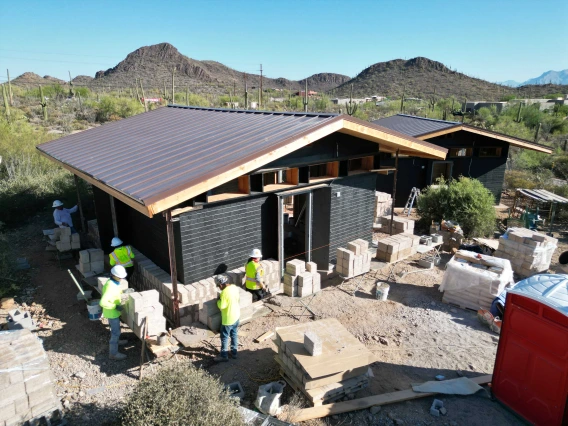AGM/Ascension Awards $5,000 to CAPLA Architecture Students in Inaugural Universal Design Prize
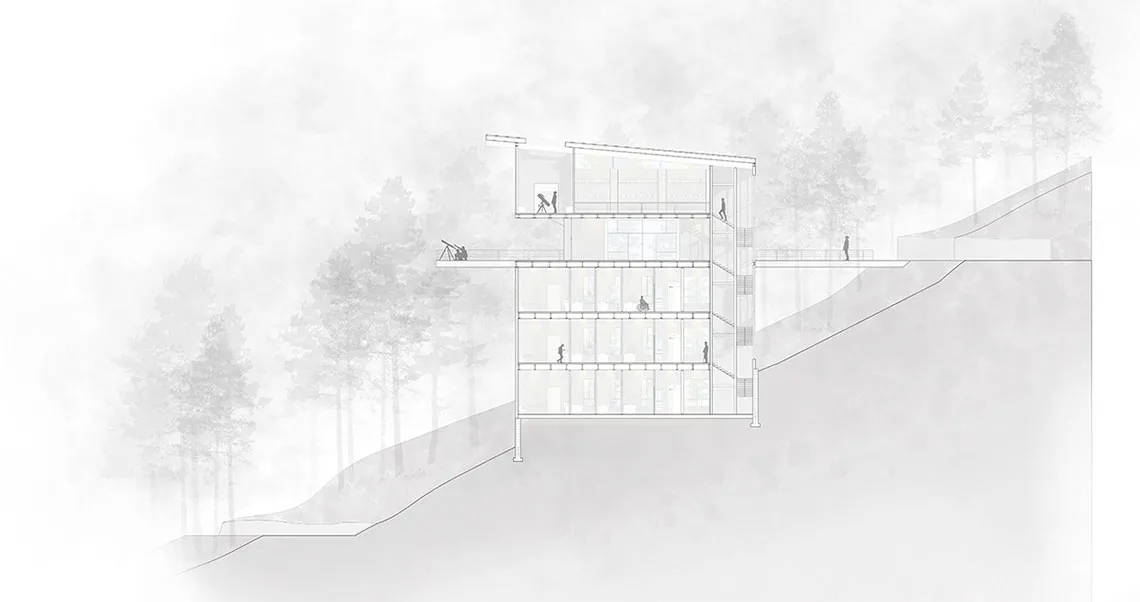
Emerge, 2020 Universal Design Prize winner by Jules Cervantes '23 B Arch

Jules Cervantes '23 B Arch
“I once read that ‘people ignore design that ignores people,’” says Jules Cervantes, a third-year Bachelor of Architecture student in the College of Architecture, Planning and Landscape Architecture at the University of Arizona. “Architecture is about creating spaces that not only serve the site and highlight the concept, but also bring people together.”
Cervantas’s studio project Emerge—which was awarded the AGM Universal Design Honor Award and $2,000 from her semester-long work in Design Studio III: Integrating Place—does just that: create a place for people through its “refined detailing and craft, particularly in its attention to light, visibility and access, which the project seems to intertwine effortlessly,” say prize judges.
Seven other third-year architecture students were also awarded prizes in CAPLA’s inaugural Universal Design Prize, funded by AGM Container Controls and Ascension Wheelchair Lifts, which has committed a total $60,000 to the studio and design prize over the next three years. Nickolas Witt and Hunter Jinbo won the Merit Award ($1,000) and innovation awards of $200 each were awarded to Jack McCahon for process, Tiffany Valenzuela for universal design, Kaya Orona for sustainability, David Zuniga for concept and Chris Kleha for architectural narrative.
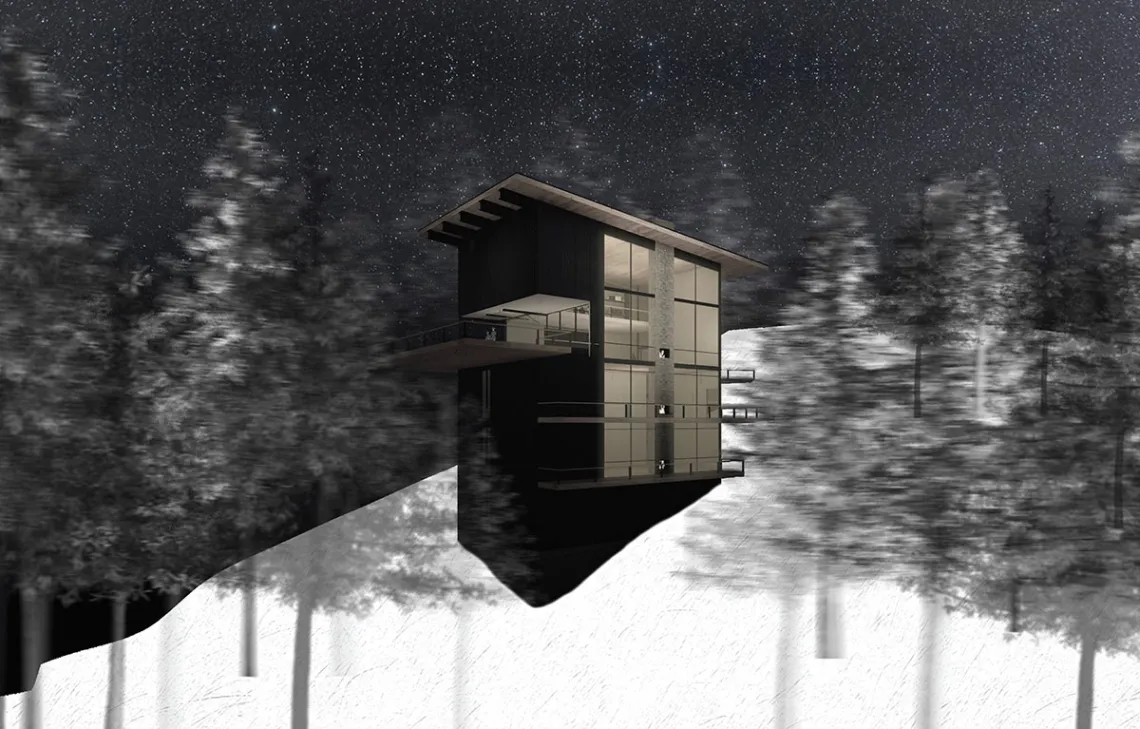
Honor Award Winner: Emerge, by Jules Cervantes
The prizes were announced by Howard N. Stewart, president and CEO of AGM Container Controls and Ascension Wheelchair Lifts, in an online ceremony at the end of the Fall 2020 semester. “The students displayed astounding talent and deep insight into the nature and value of their craft,” says Stewart. “Based on the presentations, I am excited about the future leadership they will provide in creating a world that is more accessible for all to enjoy and share.”

Nickolas Witt '23 B Arch
Universal design is a concept that prioritizes accessibility in buildings, products and environments for all people, regardless of age, ability or status in life. It was incorporated into the studio by asking students to create designs for two sloped sites: one in the historic mountain town of Bisbee and the other atop Mt. Lemmon in the Santa Catalina Mountains north of Tucson. Students also consulted with UArizona’s Disability Resource Center (DRC), “remodeled” a precedent project and viewed a series of TED (and similar) talks by those with various disabilities.
“Consistent with the studio theme of place, students responded to myriad site factors, including sun, wind, climate, views, flora, fauna, culture, history, topography and—new this semester—universal design,” says studio lead Teresa Rosano, assistant professor of practice in architecture.
Rosano and fellow studio lecturers Eduardo Guerrero, Bill Mackey and Siri Trumble invited five judges to select the winning studio projects: Aaron Bass, principal architect at Stance Architecture, Diane R. Jabobs, principal at Holly Street Studio, Eric Bell, access consultant at the UArizona DRC, Kate Stuteville, a CAPLA MS Architecture graduate, and Sherry Santee, senior access consultant at the UArizona DRC.
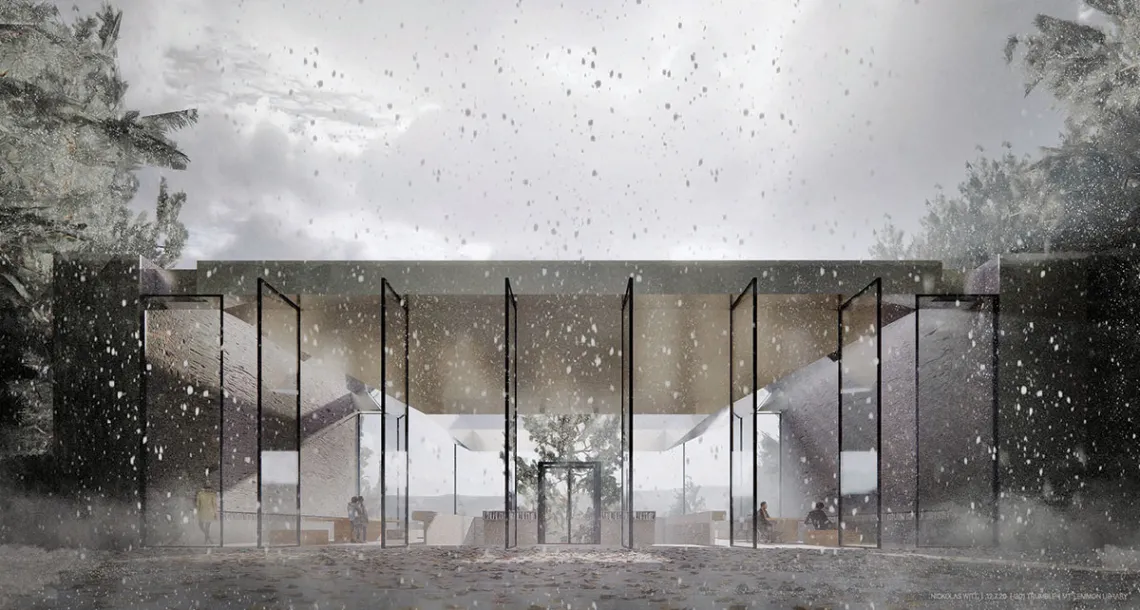
Merit Award Winner: Mount Lemmon Outdoor Library, by Nickolas Witt
“The proposals were thoughtful, well-researched and provocative, inviting the jury to stop and stay a while, enjoy the view and live together in buildings that tread lightly on the landscape and embrace multiple ability levels while creating places of commune and reflection,” say the judges.

Hunter Jinbo '23 B Arch
For Witt, whose Mount Lemmon Outdoor Library received a Merit Award, the studio experience was successful because of “the ability to understand and prioritize universal design at the beginning of the creative process.”
Jinbo, whose Mount Lemmon Science Learning Center received the other Merit Award, agrees: “Universal design is important in the creation of sustainable spaces and places because the thought put into experiences and design can become lost to those with disabilities. I think it’s easy for many of us to overlook the challenges and disabilities that others have, that we might never have to experience, which is why it’s crucial to give everyone an equal opportunity to experience a space.”
For Rosano, the studio was about understanding the importance—and perspectives—of universal design as much as it was about the students’ design outcomes themselves. “The ability to imagine spatial experience is essential in architecture,” she says. “Doing so can hone our awareness of all our senses and also serve as a practice in empathy—a skill that transcends any discipline.”
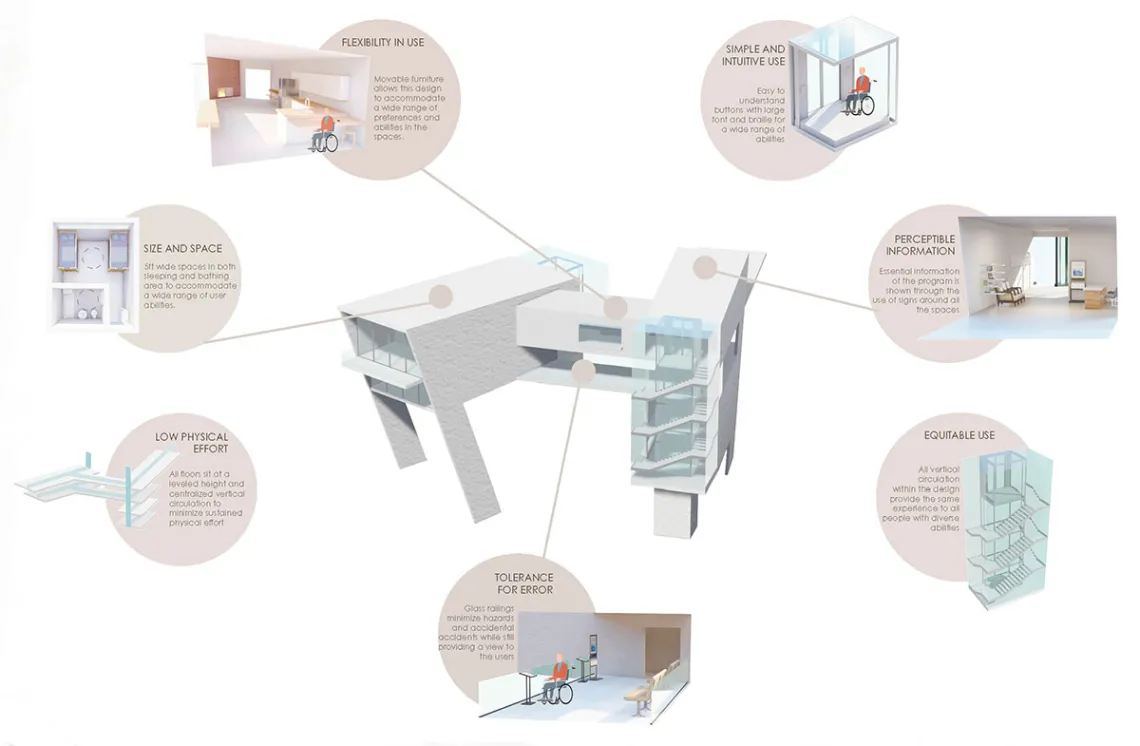
Merit Award Winner: Mount Lemmon Science Learning Center, by Hunter Jinbo



